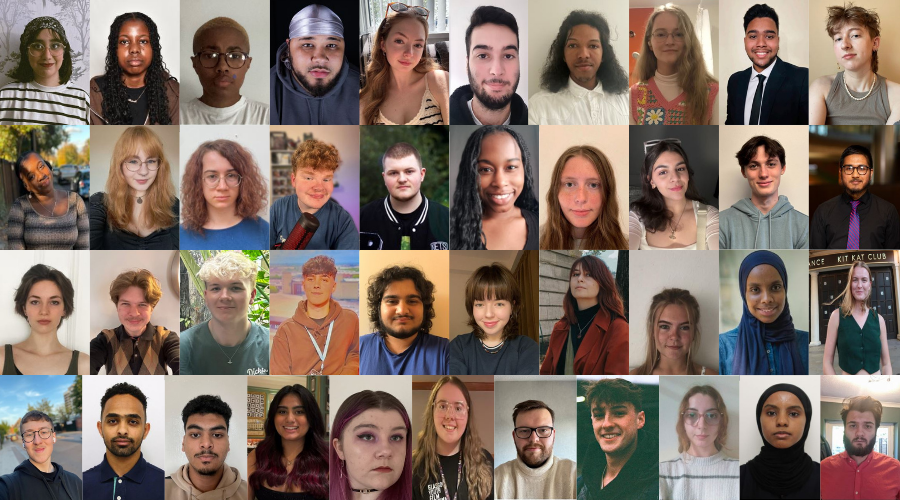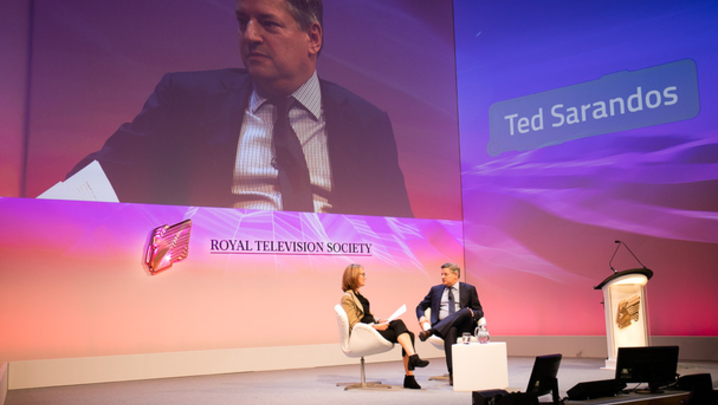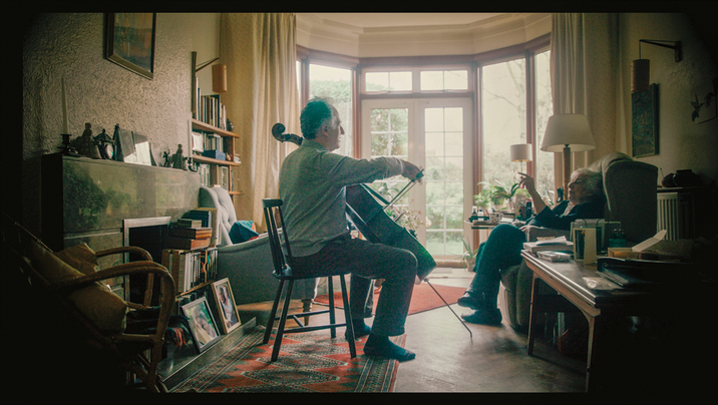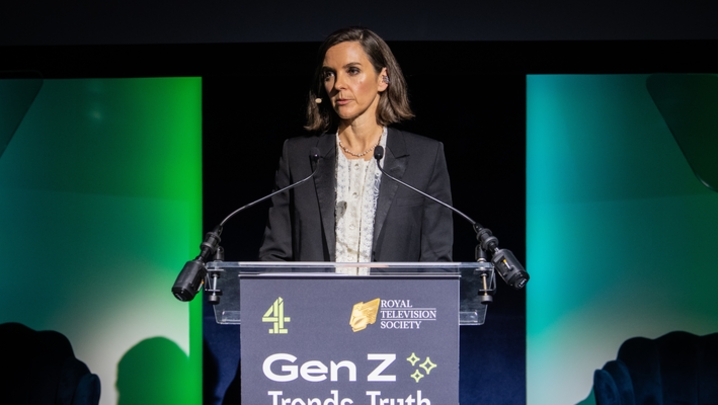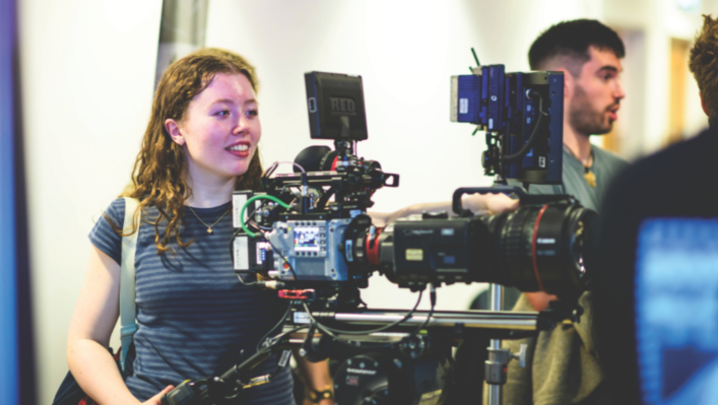Andy Harries reveals how his glittering television career almost ended before it began
It would be no exaggeration to say that British TV drama and comedy over the past 30 years would have looked very different without Andy Harries, a producer with his finger on the popular pulse, but never at the expense of quality.
While working in-house at Granada and then for his own production company, Left Bank Pictures, Harries’ hits have included Cold Feet, The Deal, Quiz and, of course, The Crown. There have also been acclaimed films, most notably The Queen and The Damned United.
Harries also ran Granada’s comedy department, giving Steve Coogan, John Thomson and Caroline Aherne their first major TV exposure in The Dead Good Show, then producing Aherne’s acclaimed The Mrs Merton Show and The Royle Family.
In conversation with former BBC One Controller Lorraine Heggessey, Harries, an RTS Fellow, looked back over almost five decades in television. His career began as a researcher at Granada in 1976 but was almost stillborn; early on, while making documentaries, an exec told Harries he had no future in television. “That sent me crazy – nothing fuelled me more than that. I was absolutely determined to prove him wrong,” he recalled.
Harries enjoyed an eclectic 1980s, making documentaries in Africa and films for arts shows including The South Bank Show and Omnibus, as well as working with the likes of Lenny Henry and Jonathan Ross.
On returning to Granada in 1992 as Controller of Comedy, Harries discovered that Manchester was a hotbed of creativity, with the music of the Happy Mondays, Tony Wilson’s Factory acts and the Haçienda, along with a burgeoning comedy scene.
Recalling working with the late Aherne on Mrs Merton and The Royle Family, Harries said: “Caroline was enchanting, amazing, extraordinary… [but] at the end of the day, she was ill-prepared, unfortunately, for fame.”
Harries has produced series and films about the (other) Royal Family, politics and contemporary history, often in the same piece of work. His interest in the Royals began, he said, in the aftermath of Princess Diana’s death, when both he and writer Peter Morgan (who penned The Deal, The Queen, The Damned United and The Crown) were in London. “There was this stillness, [it was] eerie,” he recalled. Harries started to think about the “extraordinary outpouring” of emotion from the British public. “The [memory] stayed with Pete and me.”
Almost a decade after Diana’s death, Harries and Morgan (with Stephen Frears directing) made The Queen, starring Helen Mirren as the British monarch. Harries was working with Mirren on a new version of Prime Suspect and recalled how, on a read-through of the crime drama, the actor “swept into the room… and everybody gasped and sort of bowed to her naturally. I thought: ‘Christ, she’s just like the Queen.’”
He returned to the Windsors with The Crown, his six-series Netflix opus, which portrays the life of Elizabeth II from 1947 to 2005, and, with it, tells the story of contemporary Britain. “We were the perfect project for Netflix at the perfect time,” he recalled. “Netflix wanted a big show that would, hopefully… win them some Golden Globes.”
In his conversation with Heggessey, Harries tried to pinpoint his producing modus operandi: “I’m pretty dyslexic and I made a right balls of my A-levels – I got three Ds… because I find reading quite difficult. I operate on my instincts – what appeals to me; I have a short, sharp reaction to things.”
He said he had always been “attracted to talent”, whether it was “the frighteningly bright” director Paul Greengrass on World in Action, Jonathan Ross, Helen Mirren or Caroline Aherne. “I got consumed with excitement about working with them.”
He also “loves selling shows”, usually with success. One that got away, perhaps fortunately, early in his career, was a “talking dogs show”. His pitch to the BBC featured a dog, bought from a toy shop, which “spoke” when you pulled its tail, with Harries adding a recording of the toy dog saying: “You’ve got to buy this talking dog show because it’s fantastic.”
Harries said that the BBC’s then head of comedy described it as “the most ridiculous pitch he’d ever had. It’s one of my great unmade shows”.
Heggessey suggested that he was “a huge risk-taker”.
Harries said he never gambled on football or horse racing but, at work, he admitted: “I gamble every day. If you don’t take a gamble, you’ll never know whether [a show] is going to work. It’s the only way good shows get made. I never worry about money or risk – what’s the point?”
Referring to the cost of making The Crown at some £10m an episode, Harries added: “Our business is bonkers – it doesn’t make any sense. I’m not changing the world – just trying to entertain people.”
How long can Britain reign?
The UK’s creative industries, said Andy Harries, have been ‘leading the world’ over the past 20 to 30 years, but ‘we’re under real pressure now. The impact of the streamers – the globalisation of television – is having and will have a severe impact on our creative industries’.
He went on: ‘Most productions are bought by Americans… almost every streamer is American-owned. I’ve benefited from this, so I’m not attacking it, but we have to accept that public sector broadcasting in the UK is definitely under threat.
‘[BBC Chief Content Officer] Charlotte Moore is doing a very good job – the quality of a lot of BBC shows remains extremely high, given the challenge to resources. But it doesn’t get to make all the shows it wants nowadays because it can’t compete with Netflix.
‘It’s a very challenging time. We will survive, but what the nature of the business will be in five years’ time is a concern. We might have to put some protection in for our businesses. I’m not a protectionist at heart, but we can’t be asset-stripped.
‘We have fantastic talent. There always will be production here. It’s not about being anti-American. We should welcome people investing and making shows here. It’s just that it can’t be to the point that our own shows, our own culture, withers away.
‘We were quick to realise that Netflix was probably a good option [for The Crown] but it was a big gamble. You’ve got to be prepared to embrace change, but not to abandon the traditional networks. I still make stuff for ITV and the BBC and I’m happy to [do so] if they’ve got the money for the right show.’
The RTS London Christmas Lecture was held on 4 December at the Cavendish Conference Centre. It was produced by Terry Marsh and Phil Barnes. Report by Matthew Bell.

